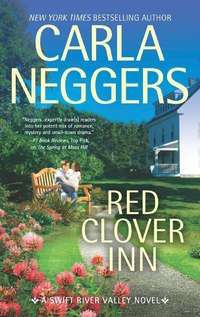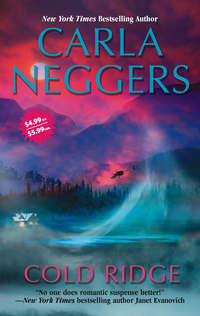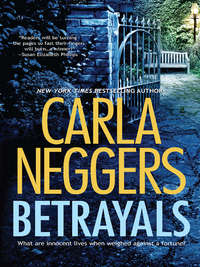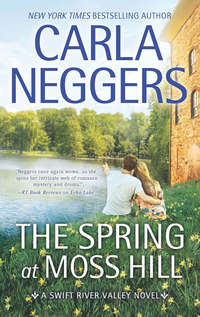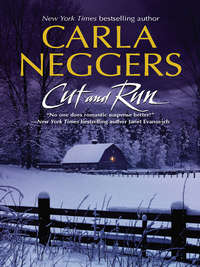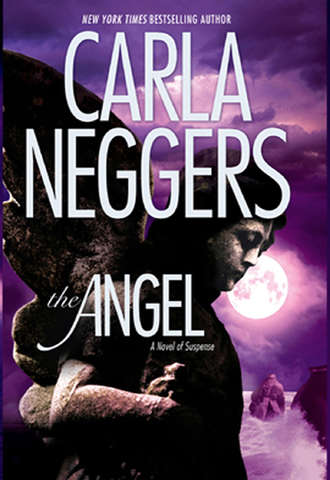
Полная версия
The Angel
“Did you see the Book of Kells when you were in Ireland in college?”
“I did.” Her mother’s tone was distant, controlled. She shifted her gaze to the blank, pure white paper on her desk, as if envisioning the intricate, thousand-year-old illuminated manuscript. “I’ll never forget it. What I’m doing is quite different. Much simpler.”
“It’ll be wonderful.”
“Thank you. The Book of Kells consists mainly of the four Gospels, but I was asked to start with the fall of Adam and Eve.” Her mother’s eyes, a striking shade of cornflower blue, shone with sudden humor. “I haven’t settled on the right serpent.”
Keira noticed a series of small pencil sketches taped to the birch board. “Those are some pretty wild serpents. It doesn’t get to you, being up here all alone drawing pictures of bad-assed snakes and bolts of lightning?”
Her mother laughed. “No bolts of lightning, I’m afraid. Although…” She thought a moment. “I don’t know, Keira, you could be onto something. A bright, organic bolt of lightning in the Garden of Eden could work, don’t you think?”
Keira could feel the tension easing out of her. She’d moved to Boston in January after a brief stint in San Diego and had trekked up here on snowshoes, hoping just to find her mother alive and reasonably sane. But her mother had been warm and toasty, a pot of chili bubbling on her woodstove, content with her rigid routines of prayer and work. Keira had thought living closer would mean they’d see more of each other. It hadn’t. She could have stayed in San Diego or moved to Miami or Tahiti or Mozambique—or Ireland, she thought. The land of her ancestors.
The land of her father.
Maybe.
Her mother’s sociability didn’t last, and the humor in her eyes died almost immediately. A studied blankness—a sense of peace, she would no doubt say—brought a neutrality to her expression. She seemed to take a conscious step back from her engagement with the world. In this case, the world as represented by her daughter.
Keira tried not to be offended. “I came to say goodbye for a few weeks. I leave for Ireland tomorrow night for six weeks.”
“Six weeks? Isn’t that a long time?”
“I’m doing something different this trip.” Keira hesitated, then said, “I’m renting a cottage on the southwest coast. The Beara Peninsula.”
Her mother gazed out at her wooded hillside. A second screen door opened onto another rock step and a small yard where she’d planted a vegetable garden, fencing it off to keep out deer and who knew what other animals.
Finally, she let out a breath. “Always so restless.”
True enough, Keira thought. As a child, she’d roamed the woods with a sketch pad and colored pencils. In college, she’d snapped up every opportunity to go places—backpacking with friends out West, jumping on a lobster boat with a short-lived boyfriend, spending a summer in Paris on a shoestring. After college, she’d tried several careers before falling back on what she loved most—drawing, painting, folklore. She’d managed to combine them into a successful career, becoming known for her illustrations of classic poems and folktales. That her work was portable, allowing her to indulge her sense of adventure, was another plus.
“When I was here last,” she said, “I told you about a project I’m involved with—I’m working with an Irish professor who’s putting together a conference on Irish folklore next spring. It’ll be in two parts, one in Boston and one in Cork.”
“I remember,” her mother said.
“One of the emphases will be on twentieth-century immigrants to America. I’ve been working that angle, and I ended up deciding to put together and illustrate a collection specifically of their stories. I have a wonderful one Gran told me before she died. She was from West Cork—”
“I know she was. Keira…” Her mother’s eyes were pained.
“What’s wrong? I’ve been to Ireland before. Not the Beara Peninsula, but—Mum, are you afraid I’m going to run into my father?”
“Your father was John Michael Sullivan.”
But Keira was referring to her biological father. Her mother had returned home from a summer study program in Ireland at nineteen, pregnant with Keira. When Keira was a year old, her mother had married John Sullivan, a South Boston electrician ten years her senior. He was killed in a car accident two years later, and his widow and adopted daughter had moved out of Boston and started a new life.
Keira had no clear memory of him, but when she looked at pictures of him, she felt an overwhelming sense of affection, gratitude and grief, as if some part of her did remember him. Her mother never discussed that one trip to Ireland thirty years ago. For all Keira knew, her biological father could have been a Swedish tourist or another American student.
She debated a moment, then said, “A woman on your old street in South Boston heard about the folklore project and got in touch with me. She told me this incredible story about three Irish brothers who fight with each other and fairies over an ancient stone angel—”
“Patsy McCarthy,” her mother said in a toneless voice.
“That’s right. She says she told you this story, too, before your trip to Ireland. The brothers believe the statue is of one of the angels said to visit Saint Ita during her lifetime. The fairies believe it’s not an angel at all but actually one of their own who’s been turned to stone. There’s more to it—it’s quite a tale.”
“Mrs. McCarthy told a lot of stories.”
“Her grandfather heard this one when he worked in the copper mines on the Beara Peninsula and told it to Patsy when she was a little girl in Ireland. The village where the brothers lived isn’t named, but there are enough details—”
“To pinpoint it. Yes, I know.”
“And the spot where the hermit monk brother lived. You could make a stab at finding it, at least, if you know the story.” Keira waited, but when her mother didn’t respond, continued. “Patsy told me you were determined to find the village and look for the hermit monk’s hut on your trip to Ireland before I was born.”
“She’s a gifted storyteller.”
“Yes, she is.”
Her mother lifted a small, filmy sheet of gold leaf to the light streaming in through the window. The use of gold—real gold—was what distinguished a true illuminated manuscript, but Keira knew it was far too soon for her mother to apply gold to her work-in-progress.
“Do you know the difference between sin and evil, Keira?”
Keira didn’t want to talk about sin and evil. She wanted to talk about Patsy’s old story and magic, mischief and fairies. “It’s not something I think much about.”
“Adam and Eve sinned.” Her mother turned the gold leaf so that it gleamed in the late-afternoon light. “They wanted to please God, but they succumbed to temptation. They regretted their disobedience. They took no delight in what they did.”
“In other words, they sinned.”
“Yes, but the serpent is a different case altogether. He delights in his wrongdoing. He exults in thwarting God. He sees himself as the antithesis of God. Unlike Adam and Eve, the serpent didn’t commit a sin in the Garden of Eden. The serpent chose evil.”
“Honestly, Mum, I don’t know how you can stand to think about this stuff out here by yourself.”
She set the thin gold leaf on the pure white paper. Keira knew from experience that the gold leaf was difficult to work with but resilient, able to withstand considerable manipulation without breaking into pieces. Applied properly, it looked like solid gold, not just a whisper of gold.
“We all sin, Keira,” her mother said without a hint of a smile, “but we’re not all evil. The devil understands that. Evil is a particular dispensation of the soul.”
“Does this have anything to do with Ireland? With what happened there when you—”
“No. It has nothing at all to do with Ireland.” She took a breath. “So, how’s your work?”
Keira stifled her irritation at the abrupt change of subject. It felt like a dismissal and probably was, but she reminded herself that she hadn’t come out to the woods to judge her mother, or even for information. She’d come simply to say goodbye before flying out of Boston tomorrow night.
“My work’s going great right now, thanks.” Why go into detail when that world no longer interested or concerned her mother?
“That’s good to hear. Thank you for stopping by.” She got to her feet and hugged Keira goodbye. “Live your life, sweetheart. Don’t get too caught up in all these crazy old stories. And please don’t worry about me out here. I’m fine.”
On her way back through the woods, Keira resisted the urge to look over her shoulder for the devil and serpents. Instead, she remembered herself as a child, and how her mother would sing her Irish songs and read her stories. Every kind of story—stories about fairies and wizards and giants, about hobbits and elves and dark lords, princes and princesses, witches, goblins, cobblers, explorers and adventurers.
How could such a fun-loving, sociable woman end up alone out here?
But Keira had to admit there had been hints of what was to come—that she’d seen glimpses in her mother of a mysterious sadness and private guilt, of a longing for a peace that she knew could never really be hers in this life.
Her mother insisted she hadn’t withdrawn from the world or rejected her family but rather had embraced her religious beliefs in a personal and profound way. She viewed herself as participating in a centuries-old monastic tradition.
That was no doubt true, but Keira didn’t believe her mother’s retreat to her isolated cabin was rooted entirely in her faith. As she’d listened to Patsy McCarthy tell her old story, Keira had begun to wonder if her mother’s trip to Ireland thirty years ago had somehow set into motion her eventual turn to the life of a religious hermit.
Another mosquito—or maybe the same one—found Keira, buzzing in her ear and jerking her back to the here and now, to her own life. She swiped at the mosquito as she plunged down the narrow trail through the woods to the dead-end dirt road where she’d parked.
The story of the three Irish brothers, the fairies and the stone angel wasn’t about a pot of gold at the end of the rainbow. Ultimately, Keira thought, it was about the push-pull of family ties and the deep, human yearning for a connection with others, for happiness and good fortune.
Mostly, it was just a damn good yarn—a mesmerizing story that Keira could illustrate and tell on the pages of her new book.
“They say the stone angel lies buried to this day in the old ruin of the hermit monk’s hut.”
Maybe, maybe not. Patsy McCarthy, and her grandfather before her, easily could have exaggerated and embellished the story over the years. It didn’t matter. Keira was hooked, and she couldn’t wait to be on her way to Ireland.
In the meantime, she had to get back to Boston in time for a reception and a silent auction to benefit the Boston-Cork folklore project that had brought her to Patsy’s South Boston kitchen in the first place.
She glanced back into the woods, wishing her mother could be at the reception tonight. “Not just for my sake, Mum,” Keira whispered. “For your own.”
Chapter 2
Boston Public Garden
Boston, Massachusetts
7:00 p.m., EDT
June 17
Victor Sarakis didn’t let the heavy downpour stop him.
He couldn’t.
He had to warn Keira Sullivan.
Rain spattered on the asphalt walks of the Public Garden, a Victorian oasis in the heart of Boston. He picked up his pace, wishing he’d remembered to bring an umbrella or even a hooded jacket, but he didn’t have far to go. Once through the Public Garden, he had only to cross Charles Street and make his way up Beacon Street to an address just below the gold-domed Massachusetts State House.
He could do it. He had to do it.
The gray, muted light and startling amount of rain darkened his mood and further fueled his sense of urgency.
“Keira can’t go to Ireland.”
He was surprised he spoke out loud. He was aware that many people didn’t consider him entirely normal, but he’d never been one to talk to himself.
“She can’t look for the stone angel.”
Drenched to the bone as he was, he’d look like a madman when he arrived at the elegant house where the benefit auction that Keira was attending tonight was being held. He couldn’t let that deter him. He had to get her to hear him out.
He had to tell her what she was up against.
What was after her.
Evil.
Pure evil.
Not mental illness, not sin—evil.
Victor had to warn her in person. He couldn’t call the authorities and leave it to them. What proof did he have? What evidence? He’d sound like a lunatic.
Just stop Keira from going to Ireland. Then he could decide how to approach the police. What to tell them.
“Victor.”
His name seemed to be carried on the wind.
The warm, heavy rain streamed down his face and back, poured into his shoes. He slowed his pace.
“Victor.”
He realized now that he hadn’t imagined the voice.
His gaze fell on the Public Garden’s shallow pond, rain pelting into its gray water. The famous swan boats were tied up for the evening. With the fierce storms, the Public Garden was virtually empty of people.
No witnesses.
Victor broke into an outright run, even as he debated his options. He could continue on the walkways to Charles Street, or he could charge through the pond’s shallow water, try to escape that way.
But already he knew there’d be no escape.
“Victor.”
His gait faltered. He couldn’t run fast enough. He wasn’t athletic, but that didn’t matter.
He couldn’t outrun such evil.
He couldn’t outrun one of the devil’s own.
No one could.
Chapter 3
Beacon Hill
Boston, Massachusetts
8:30 p.m., EDT
June 17
Not for the first time in his life, Simon Cahill found himself in an argument with an unrelenting snob, this time in Boston, but he could as easily have been in New York, San Francisco, London or Paris. He’d been to all of them. He enjoyed a good argument—especially with someone as obnoxious and pretentious as Lloyd Adler.
Adler looked to be in his early forties and wore jeans and a rumpled black linen sport coat with a white T-shirt, his graying hair pulled back in a short ponytail. He gestured across the crowded, elegant Beacon Hill drawing room toward a watercolor painting of an Irish stone cottage. “Keira Sullivan is more Tasha Tudor and Beatrix Potter than Picasso, wouldn’t you agree, Simon?”
Probably, but Simon didn’t care. The artist in question was supposed to have made her appearance by now. Adler had griped about that, too, but her tardiness hadn’t seemed to stop people from bidding on the two paintings she’d donated to tonight’s auction. The second was of a fairy or elf or some damn thing in a magical glen. Proceeds would go to support a scholarly conference on Irish and Irish-American folklore to be held next spring in Boston and Cork, Ireland.
In addition to being a popular illustrator, Keira Sullivan was also a folklorist.
Simon hadn’t taken a close look at either of her donated paintings. A week ago, he’d been in Armenia searching for survivors of a moderate but damaging earthquake. Over a hundred people had died. Men, women, children.
Mostly children.
But now he was in a suit—an expensive one—and drinking champagne in the first-floor chandeliered drawing room of an elegant early nineteenth-century brick house overlooking Boston Common. He figured he deserved to be mistaken for an art snob.
“Beatrix Potter’s the artist who drew Peter Rabbit, right?”
“Yes, of course.”
Simon swallowed more of his champagne. It wasn’t bad, but he wasn’t a snob about champagne, either. He liked what he liked and didn’t worry about the rest. He didn’t mind if other people fussed over what they were drinking—he just minded if they were a pain in the ass about it. “When I was a kid, my mother decorated my room with cross-stitched scenes of Peter and his buddies.”
“I beg your pardon?”
“Cross-stitch. You know—you count these threads and—” Simon stopped, deliberately, and shrugged. He knew he didn’t look like the kind of guy who’d had Beatrix Potter rabbits on his wall as a kid, but he was telling the truth. “Now that I’m thinking about it, I wonder what happened to my little rabbits.”
Adler frowned, then chuckled. “That’s very funny,” he said, as if he couldn’t believe Simon was serious. “Keira Sullivan is good at what she does, obviously, but I hate to see her work overshadow several quite interesting pieces here tonight. A shame, really.”
Simon looked at Adler, who suddenly went red and bolted into the crowd, mumbling that he needed to say hello to someone.
A lot of his arguments ended that way, Simon thought as he finished off his champagne, got rid of his empty glass and grabbed a full one from another tray. The event was catered, and most of the guests were dressed up and having a good time. From what he’d heard, they included a wide range of people—academics, graduate students, artists, musicians, folklorists, benefactors, a couple of priests and a handful of politicians and rich art collectors.
And at least two cops, but Simon steered clear of them.
“Lloyd Adler’s not that easy to scare off,” Owen Garrison said, shaking his head as he joined Simon. Owen was lean and good-looking, but all the Garrisons were. Simon was built like a bull. No other way to say it.
“I’m on good behavior tonight.” He grinned, cheekily putting out his pinkie finger as he sipped his fresh champagne. Owen just rolled his eyes. Simon decided he’d probably had enough to drink and set the glass on a side table. Too much bubbly and he’d start a fight. “I didn’t say a word.”
“You didn’t have to,” Owen said. “One look, and he scurried.”
“No way. I’m charming. Everyone says so.”
“Not everyone.”
Probably true, but Simon did tend to get along with people. He was at the reception as a favor to Owen, whose family, not coincidentally, owned the house where it was taking place. The Garrisons were an old-money family who’d left Boston for Texas after the death of Owen’s sister, Dorothy, at fourteen. It was a hellish story. Just eleven himself at the time, Owen had watched her fall off a cliff and drown near the Garrison summer home in Maine. There was nothing he could have done to save her.
Simon suspected the trauma of that day was the central reason Owen had founded Fast Rescue, an international search-and-rescue organization. It was based in Austin and operated on mostly private funds to perform its central mission to put expert volunteer teams in place within twenty-four hours of a disaster—man-made or natural—anywhere in the world.
Simon had become a Fast Rescue volunteer eighteen months ago, a decision that was complicating his life more than it should have, and not, he thought, because the Armenian mission had fallen at a particularly awkward time for him.
Owen, a top search-and-rescue expert himself, was wearing an expensive suit, too, but he still looked somewhat out of place in the house his great-grandfather had bought a century ago. The decor was in shades of cream and sage green, apparently Dorothy Garrison’s favorite colors. The first floor was reserved for meetings and functions, but the second and third floors comprised the offices for the foundation named in Dorothy’s honor and dedicated to projects her family believed would have been of particular interest to her.
Owen glanced toward the door to the house’s main entry. “Still no sign of Keira Sullivan. Her uncle’s getting impatient.”
Her uncle was Bob O’Reilly, her mother’s older brother and one of the two cops there tonight Simon was avoiding. Owen’s fiancée, Abigail Browning, was the other one. She and O’Reilly were both detectives with the Boston Police Department. O’Reilly was a beefy, freckle-faced redhead with a couple decades on the job. Abigail was in her early thirties, slim and dark-haired, a rising star in the Homicide Unit.
She was also the daughter of John March, the director of the Federal Bureau of Investigation and the reason Simon’s association with Fast Rescue had become complicated. He used to work for March. Sort of still did.
He’d decided to avoid Abigail and O’Reilly because both of them would have a nose for liars.
“Any reason to worry about your missing artist?” he asked Owen.
“Not at this point. It’s pouring rain, and the Red Sox are in town—rained out by now, I’m sure. I imagine traffic’s a nightmare.”
“Can you call her?”
“She doesn’t own a cell phone. No phone upstairs in her apartment, either.”
“Why not?”
“Just the way she is.”
A flake, Simon thought. He’d learned, not that he was interested, that Keira was renting a one-bedroom apartment on the top floor of the Garrison house until she figured out whether she wanted to stay in Boston. He understood wanting to keep moving—he lived on a boat himself and not by accident.
“Abigail’s bidding on one of Keira’s pieces,” Owen said.
“The fairies or the Irish cottage?”
“The cottage, I think.”
They were imaginative, cheerful pieces. Keira had a flare for capturing and creating a mood—a part-real, part-imagined place where people wanted to be. Her work wasn’t sentimental, but it wasn’t edgy and self-involved, either. Simon didn’t have much use for a painting of fairies or an Irish cottage in his life. No house to hang it in, for one thing.
Irish music kicked up, and he noticed an ensemble of young musicians in the far corner, obviously enjoying themselves on their mix of traditional instruments. He picked out a tin whistle, Irish harp, bodhran, mandolin, fiddle and guitar.
Not bad, Simon thought. But then, he liked Irish music.
“The girl on the harp is Fiona O’Reilly,” Owen said. “Bob’s oldest daughter.”
Simon wasn’t sure he wanted to know any more about Owen’s friends in Boston, especially ones in, or related to, people in law enforcement. It was all too tricky. Too damn dangerous. But here he was, playing with fire.
Owen’s gaze drifted back to his fiancée, who wore a simple black dress and was laughing and half dancing to the spirited music. Abigail caught his eye and waved, her smile broadening. They were working on setting a date for their wedding. Whenever it was, Simon planned to be out of the country.
“You can’t tell her about me, Owen.”
“I know.” He broke his eye contact with Abigail and sighed at Simon. “She’ll find out you’re not just another Fast Rescue volunteer on her own. One way or the other, she’ll figure out your relationship with her father—she’ll figure out that I knew and didn’t tell her. Then she’ll hang us both by our thumbs.”
“We’ll deserve it, but you still can’t tell her. My association with March is classified. We shouldn’t even be talking about it now.”
Owen gave a curt nod.
Simon felt a measure of sympathy for his friend. “I’m sorry I put you in this position.”
“You didn’t. It just happened.”
“I should have lied.”
“You did lie. You just didn’t get away with it.”
The song ended, and the band transitioned right into the “The Rising of the Moon,” a song Simon knew well enough from his days in Dublin pubs to hum. But he didn’t hum, because if he’d been mistaken for an art critic—or at least an art snob—already tonight, next he’d be mistaken for a music critic. Then he’d have to rethink his entire approach to his life, or at least start a brawl.
“In some ways,” he said, “my lie was more true than the truth.”
Owen grabbed a glass of champagne. “Only you could come up with a statement like that, Simon.”
“There are facts, and there’s truth. They’re not always the same thing.”
A whirl of movement by the entry drew Simon’s attention, and he gave up on trying to explain himself.
A woman stood in the doorway, soaking wet, water dripping off the ends of her long, blond hair.





